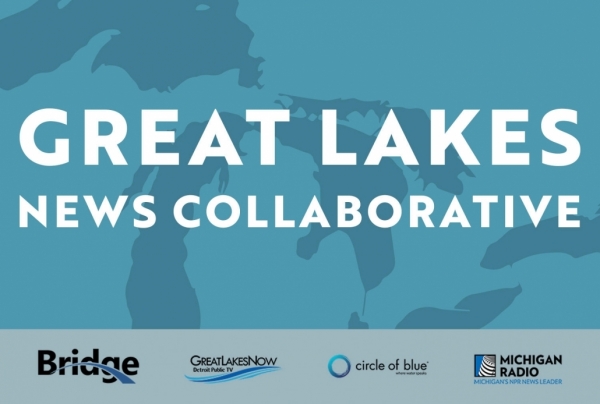Fresh, April 18, 2023: Minnesota Lawmakers Debate Future of State’s Environmental Funding
April 18, 2023
Fresh is a biweekly newsletter from Circle of Blue that unpacks the biggest international, state, and local policy news stories facing the Great Lakes region today. Sign up for Fresh: A Great Lakes Policy Briefing, straight to your inbox, every other Tuesday.
— Christian Thorsberg, Interim Fresh Editor
This Week’s Watersheds
- Minnesota’s environmental funding plan, which is seeded with state lottery proceeds and is set to expire in 2025, is likely to be on the ballot next year with possible amendments.
- The Nature Conservancy of Canada has made a deal to buy Batchewana Island, Lake Superior’s largest privately owned island, to protect it from development.
- Eleven restoration projects in northeast Wisconsin, including a Green Bay water partnership, will receive funding through the Great Lakes Restoration Initiative.
- After a decades-long court battle, the Chippewas of Saugeen First Nation are declared the rightful owners of Sauble Beach, a Lake Huron shoreline.
A coalition comprising 51 tribal nations from the upper Great Lakes region sent a report to the United Nations, demanding Canada abandon its support of Enbridge’s Line 5 pipeline.
“It’s just a matter of time before there’s an accident. A catastrophic accident that’s going to change our livelihood for the whole state. That’s one thing I wish people would understand, that it’s not just an indigenous problem, it’s all of our problems.” — David Arroyo, chairman of the Grand Traverse Band of Ottawa and Chippewa Indians.
In a report sent to the United Nations Human Rights Council, leaders from 51 tribal nations in the Great Lakes region demanded that their voices be included in Canada’s decisions related to Enbridge’s Line 5 oil pipeline, which transports oil across the border into Michigan.
For the pipeline to operate, the country invoked the 1977 Transit Pipeline Treaty. Interlochen Public Radio reports that the tribes are demanding Canada withdraw the decision.
The report comes just a few months before the United Nations conducts a standard review of Canada’s human rights history.
Meanwhile, Michigan Gov. Gretchen Whitmer’s shutdown order will be reviewed by a federal judge, and the U.S. Army Corps of Engineers delayed its environmental review of a Line 5 tunnel beneath the Straits of Mackinac until at least 2025.
Fresh from the Great Lakes News Collaborative

- Congressional attempt to block Biden rule on protection for some streams and wetlands vetoed — Michigan Radio
- New appeal of $626 million Flint water deal in dispute over lawyer fees — Bridge Michigan
- Former U.N. adviser warns on water futures trading, elevates water crisis to level of climate — Great Lakes Now
The Great Lakes News Collaborative includes Bridge Michigan; Circle of Blue; Great Lakes Now at Detroit Public Television; and Michigan Radio, Michigan’s NPR News Leader. We work together to produce news and information about the impact of climate change, pollution, and aging infrastructure on the Great Lakes and drinking water. This independent journalism is supported by the Charles Stewart Mott Foundation. Find all the work here.

Minnesota’s Environmental Trust Fund, With Potential Changes, To Be On 2024 Ballots
Lawmakers are debating potential modifications to the state’s Environment and Natural Resources Trust Fund, which, per the Minnesota Constitution, allocates 40 percent of net state lottery proceeds to fund environmental projects, the Minnesota Post reports.
Ahead of the trust fund’s 2025 expiration, House and Senate Democrats are working on a proposed extension — with possible changes — which Minnesotans could vote on next year.
Established in 1988, the fund has given nearly $1 billion to projects which pursue “protection, conservation, preservation, and enhancement of the state’s air, water, land, fish, wildlife, and other natural resources,” the Post reports. Past recipients have included public and private universities, tribal governments, local governments, and nonprofits.
In recent proposals, lawmakers have suggested a bump in funding — from 40 percent to 50 percent — an extension, until 2050, for the state lottery to bankroll much of the trust fund; the creation of a “community grant program” to give easier access to small nonprofits, “especially groups that seek to help people of color or low-income rural areas”; and certain limits on how the money can be used.
In the past and still today, using the trust fund to pay for infrastructure and improvements to wastewater facilities constitutes a controversial bipartisan divide — Republicans for, Democrats against.
Whichever amended version of the trust fund passes through the state legislature, Minnesotans will find it on their ballots in 2024.
In the News
BATCHEWANA ISLAND: With more than 2,000 hectares of forest and wetland habitat and nearly 17 miles of shoreline, Batchewana Island — formerly the largest privately owned island in Lake Superior — has been purchased by the Nature Conservancy of Canada for the purposes of protecting it against development. The group has raised 80 percent of funds needed to meet the $7.2 million price tag, CTV News reports. A plethora of vulnerable and endangered species — including gray wolf, black bear, and lake sturgeon — call the island home. More than 30 species of migratory birds forage and nest in Batchewana’s old growth forests, which support an annual carbon capture equivalent to the energy use of 500,000 homes, per CTV.
SAUBLE BEACH: After 28 years of litigation and 170 years of fighting outside of court, the Chippewas of Saugeen First Nation “is — and always has been — the rightful owner of Sauble Beach,” the St. Catherine’s Standard reports. The 1.5 mile stretch of shoreline along Lake Huron, called “Chi-Gmiinh,” is a sacred fishing ground. Previously, the Town of South Bruce Peninsula had claimed ownership. As long-term reconciliation efforts and plans for the land are finalized, a “community celebration is being planned and will be full of food, music and prayer,” the Standard reports.
Looking Ahead
GREAT LAKES: Over $1 million in federal funding, through the Great Lakes Restoration Initiative, has been approved for 11 projects in northeast Wisconsin, WLUK Green Bay reports. The largest grant, of nearly $300,000, will establish a NEW Water partnership with the Green Bay Metropolitan Sewerage District to reduce wastewater runoff in Brown County, estimated to prevent the flooding of 372,000 gallons of water annually. The 10 other projects, with about $800,000 in funding, will focus on curbing invasive species in Lake Michigan watersheds, soil and water conservation, riparian restoration, and tree planting.
Upcoming Events
April 22 — Earth Day
April 26 — Freshwater Science: Lake Erie Charter Captains Business Survey — register
May 8 – 13 — IAGLR 2023: 66th Annual Conference on Great Lakes Research — learn more
Other News
TOXIC WASTEWATER: Environmentalists, a grand jury, and the EPA have flagged “disposal problems” and toxic wastewater in northwest Pennsylvania, as fracking for natural gas remains a controversial player in the state’s economy, InsideClimate News reports.
LAMPRICIDES: In response to an overabundance of sea lamprey larvae, which “live in certain Great Lakes tributaries and transform to parasitic adults that migrate to the Great Lakes and kill fish,” the U.S. Fish and Wildlife Service will apply lampricides to the Black River in Alcona County, Michigan, the Iosco County News-Herald reports.
Christian Thorsberg is an environmental writer from Chicago. He is passionate about climate and cultural phenomena that often appear slow or invisible, and he examines these themes in his journalism, poetry, and fiction.






Leave a Reply
Want to join the discussion?Feel free to contribute!